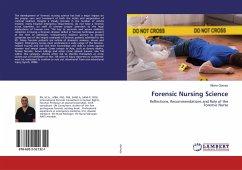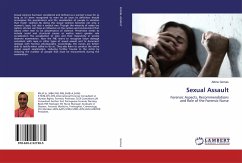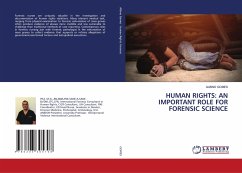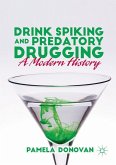The development of forensic nursing science has had a major impact on the proper care and treatment of both the victim and perpetrator of criminal violence. Despite a steady increase in the number of victims treated, many hospital emergency departments, do not have a forensic nurse examiner, on staff to oversee proper attention to the legal implications of trauma care. The key to accurate and secure evidence collection is having a forensic clinician skilled in forensic technique present at the time of admission. Interpersonal violence (person to person) comprises one of the largest caseloads of forensic patients admitted to the ED. Many forensic patients are victims of domestic violence, abuse and neglect. Emergency nurses must understand a wide range of the forensic-related trauma and not limit their knowledge and skills to crimes against women and sexual assault. Cases unique to Asia, such as dowry deaths, female feticide, honor killings and other crime related trauma, also fall within this category. Victims often fail to identify themselves as crime victims out of humiliation or fear. All cases of injury reported as 'accidental' must be evaluated to confirm or rule out intentional from non-intentional injury (Lynch, 2006).
Bitte wählen Sie Ihr Anliegen aus.
Rechnungen
Retourenschein anfordern
Bestellstatus
Storno








